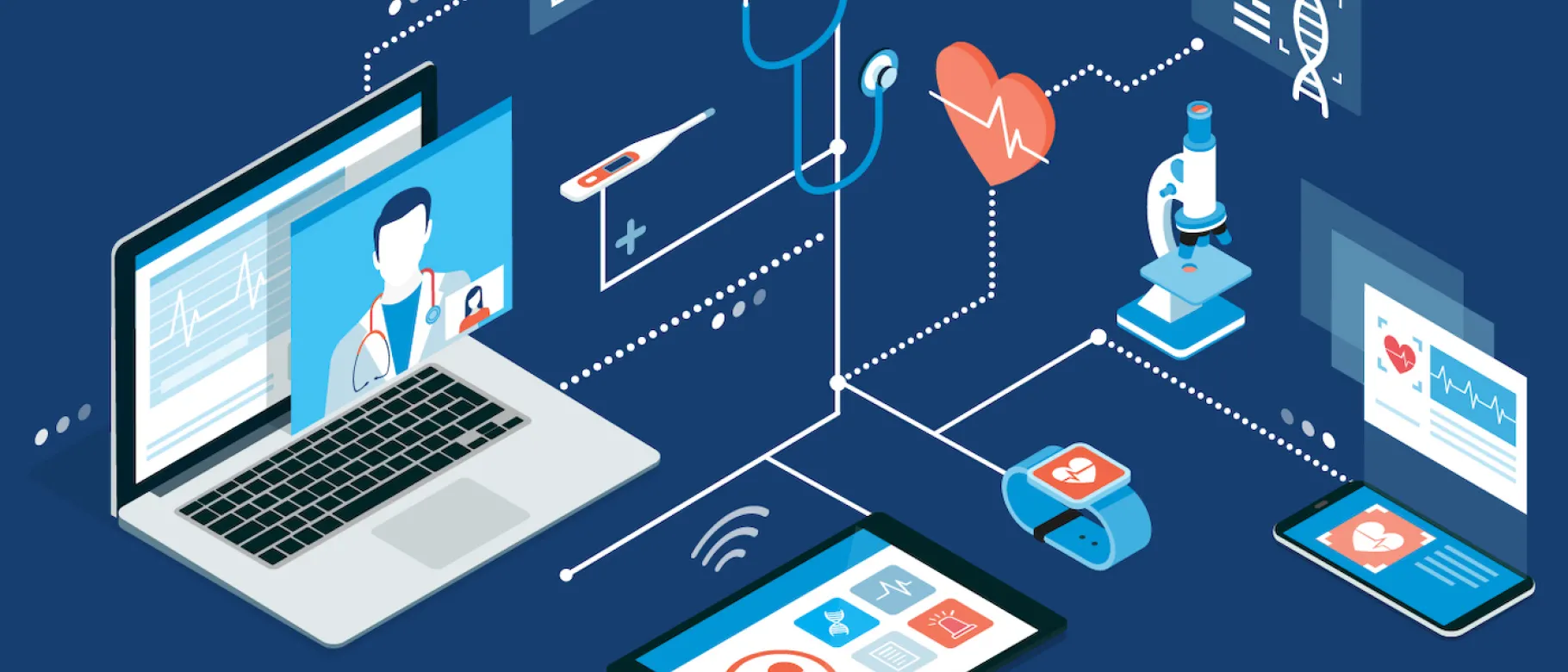Best practices for interprofessional telecollaboration focus of UNE virtual event

An interprofessional group of students, faculty, professional staff, and community members gathered virtually on Thursday, Dec. 3, for a facilitated discussion on best practices for telehealth and telecollaboration methods across regions and disciplines.
The event, “Telecollaboration: Best Practices for Teams,” sponsored by the Center for Excellence in Collaborative Education (CECE) at the University of New England, drew medical and mental health experts from across the region for the purposes of discussing telehealth practice and how to best incorporate its use in cross-disciplinary digital environments.
Shelley Cohen Konrad, Ph.D., LCSW, FNAP, director of the center and the School of Social Work, said the goal of the session was to prepare participants with the background and skills to participate in simulated and future practice using telehealth and telecollaboration methods.
Telecollaboration incorporates interprofessional competencies into remote practices with teams.
“Providers using telehealth must have heightened awareness of how they communicate, verbally and nonverbally, with patients as well as with other members of the health team,” Konrad explained. “Providers must have knowledge of each other’s roles and responsibilities and be proficient in teamwork skills as they navigate virtual landscapes of teamwork practice.”
In breakout rooms, participants discussed their own usage of telehealth and how they have interacted with patients.
“In my experience, many patients are feeling alone and isolated right now,” said Christine Quong (M.S.W., ’21), who is currently completing a geriatric psychiatry internship. “I think being available through telehealth provides more access for patients and allows them to partake on their end, especially since many older adults have fears of leaving their homes. This gives them a way to feel safe.”
Participants discussed many of the benefits of telehealth, including convenience and that clients may feel more comfortable disclosing information to providers in their home settings. Drawbacks including potential security risks and barriers to access to telehealth were also discussed.
Much of the event focused on ways to improve telecollaboration as telehealth practice becomes cemented as a permanent form of care — even as the COVID-19 pandemic eventually subsides.
“I’m trying to challenge folks with not saying that telehealth is a tool, but that it is here, and it is effective, and it is something that we do,” said Glenn Simpson, M.S.W. ’18, a panelist at the event. “That gives our clients more options, and isn’t that what we want to do? Telehealth is much more than a tool; it’s another option that helps empower people in a way they feel safe and can be safely vulnerable — and it’s here to stay.”
The event was held as part of a collaboration with Rosalind Franklin University Medicine and Science (RFUMS) in Chicago to test the Center for Excellence in Collaborative Education’s long-running Interprofessional Team Immersion with students from two universities working together to provide the best possible care to standardized patients.
Eleven health professions students from RFU participated in the telecollaboration event, as did 60 UNE graduate and undergraduate students from the Westbrook College of Health Professions — including the Schools of Social Work, Pharmacy, and Nursing and Population Health — the College of Dental Medicine, and the College of Osteopathic Medicine.
"RFUMS students are very excited to participate in the collaboration and work with UNE students,” said Sarah S. Garber, Ph.D., director of Interprofessional Studies at the DeWitt C. Baldwin Institute for Interprofessional Education at RFUMS.